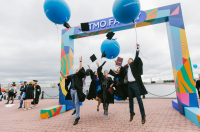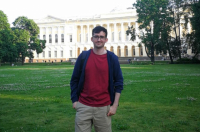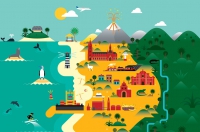How did you become a student at ITMO University?
I became an ITMO student by participating in the Rossotrudnichestvo scholarship. ITMO was my first option from the start because I consider it a really modern university with amazing infrastructure and a lot of resources directed to the holistic development of their students. Also, it is really important for me that it has a lot of international ties with other universities and it places well in many international university rankings.
Why did you choose this program?
I chose Biotechnology because I’m really interested in nature, its functionality, and the research and development of new sustainable ideas.
How did you get the scholarship?
The scholarship process in Colombia is spearheaded by the Russian Embassy and a governmental Colombian organization called ICETEX. The selection process consists of two main phases: the first one is registering on the Rossotrudnichestvo website where you enter your data, choose your career and six universities you're interested in; then, you must bring some physical documents to the ICETEX offices. It’s necessary to meet some requirements like having good school grades, good health, and have a clean legal history. After the selection process, you are assigned to a university and start the migration process to enroll in your studies in Russia.
What can you tell us about your background? What did you do before coming to Russia?
I was 18 years old when I left my country. I used to participate in science projects in my school. During the last year that I spent in Colombia, while I was waiting for the scholarship results, I worked at a kindergarten teaching little girls basic subjects and I also enjoyed doing social services and taking part in ecological events.
Allison Ascanio. Credit: Jorge Medina (@jamedina5) for ITMO.NEWS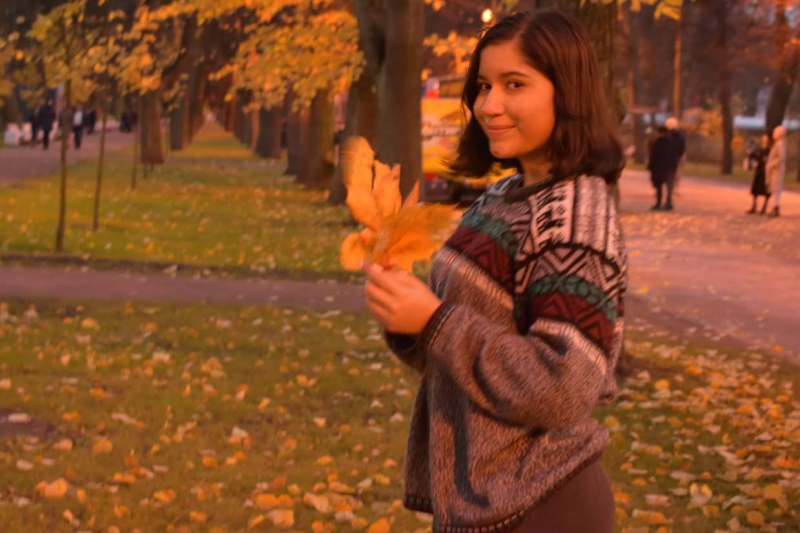
At the beginning of the academic year, did you decide to study online or in-person?
Since I’m a first-year student, I started studying in-person because I was really interested in improving my Russian language skills and getting involved in university life. Since the COVID-19 situation got complicated, we were recently transferred to online learning. It wasn't my choice at the beginning, but now I see that it also has some advantages.
How was your first contact with the University? Was it difficult to obtain the necessary documents to study here?
Communicating with the University was so easy from the beginning: the international office resolved all the questions that I had about the documentation process and helped me with my visa inquiries. Before arriving in St. Petersburg they had already explained to me how the accommodation worked at the dormitories, the documents that I had to prepare, and all the information that I needed to make my arrival easier.
What were your first impressions of Russia?
My flight arrived in Moscow, so my first impression of Russia was amazing since during my transfer from the airport to the train station I saw through the window the beautiful and unique Soviet architecture and how clean and organized the city was. Of course, I was so confused at the train station because I didn't know any Russian and almost nobody spoke English, but a Russian man who noticed how confused I was helped me buy the tickets and get to the train platform. He even carried my luggage.
When I finally arrived in St. Petersburg, the first thing I saw was the stunning Ploshchad Vosstaniya (Uprising Square) in the center of the city. I took a taxi from there to the university campus on Lomonosova Street. As I moved around the city I felt so comfortable, safe, and relaxed. I could easily understand how the metro worked, and thanks to the international office I contacted a Colombian student who helped me with the documentation to register at the dormitory. I was so lucky because I was placed in a very good room and even though the bathrooms, kitchens, and shower of the building aren't a five-star hotel, it’s nothing I couldn't get used to.
Talking about the weather, I'm a cold-weather lover, so I couldn't imagine a better city for me to live in than St. Petersburg.
What do you like about St. Petersburg and Russia in general?
What I love the most about St. Petersburg is the variety of cultural spaces that it offers, from museums to natural parks, bars and restaurants, live events or simply walking around the streets. There's always something you can do here. Another thing I love about this city is that a lot of people from all around the world visit it frequently, so it's easy to get to know other cultures and have good experiences with foreigners. The architecture is just stunning. You get more and more fascinated every day with each fact that you learn about this city.
Allison Ascanio. Credit: Jorge Medina (@jamedina5) for ITMO.NEWS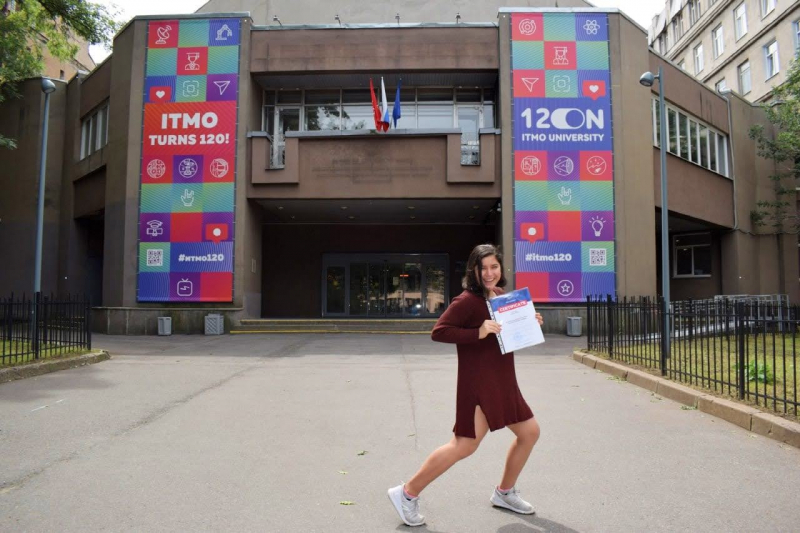
What can you tell us about your first year as an international student at ITMO?
My first year of studies at ITMO University was in the Foundation Program since I didn't know any Russian before coming here. The course was comprehensive and the topics were very useful. The teachers are patient and dedicated, always trying to help you understand the language and the culture of this country better. The hardest part was trying to communicate in the first few weeks because not all Russians speak English, but with time and practice, you start learning common everyday phrases and talking becomes easier. ITMO University offers amazing facilities for its international students to make them feel comfortable in their academic environment. The university buildings are so modern with lots of technology and also the quality of the staff is exceptional: they're always open to help international students with their difficulties and encourage you to get involved in different university events.
Was it hard to get used to changes in your life?
Moving to Russia changed my life completely. Living here alone and being responsible for myself was maybe the most difficult part, but the best one is getting to know how people from a completely different culture see the world from a different perspective and learning from that.
What do people in your country think about Russia? Is your vision of it now different from what you expected?
Colombian people really don't know much about Russia. It's an unknown culture for us. They usually associate Russia with winter weather, vodka and of course, the Russian character.
My vision of Russia has changed a lot and it's constantly changing now. I know that Russia as a country has played such an important role in world history from many different scenarios, from science to music. Like all countries, Russia has its advantages and disadvantages, but in general, I think this country has an original and attractive culture. People are so respectful, honest and proud of their country and its history; even though sometimes they're shy or introverted, you can get to know them better with patience and discover many impressive facts about them; they're so talented in arts, sports, music and are such intelligent people.
What are your hobbies?
I have many hobbies. I love to read books, play music, exercise, draw, and write. Sadly, since I started studying at the university my time for hobbies has been really limited and I can't participate in many extracurricular activities. Another hobby that I have is filming videos for my YouTube channel, where I've been sharing a lot of information about Russia in order to encourage more students to come here.
What are your expectations at the University and your plans for the future?
My main expectation for this year is to successfully adapt to the education methods of each teacher, improve my Russian language, and be a better student each day. When it comes to my degree, I really want to have the opportunity to join a research group or start my own project in ecology. Also, I’d like to get to know more students who can share with me more about their cultures and, if there's enough time, I want to get more involved in extracurricular activities because everything that this university does is so interesting for me.
My plans for the future are to finish my studies here in Russia and start building a business, idea, or research project. I haven't decided yet if I want to stay in Russia to continue with my Master’s degree or move to another country, but for now, I'm enjoying living here too much and learning from this experience.
Any advice for other international students who want to come to Russia? Would you recommend it?
My advice to students who want to come to Russia is that you need to be open-minded and have the disposition to get to know everything that you'll discover here. Of course, it is not easy at all. Being a foreigner in Russia is like challenging yourself every day in many different ways, but it’s all worth it because you become a better version of yourself. Be patient, trust yourself, don't be afraid of failing and the most important part – enjoy every second of this experience. Don't hesitate, come to St. Petersburg – you won’t regret it and even more if your university is ITMO.
Interview by Juan Sebastian Velasquez Acevedo

